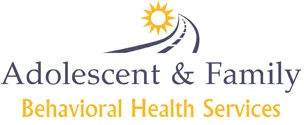So you have apologized, but it was not accepted by the individual. Now what you ask? Well, you have a few options. One, you can walk away and think, “I did my part and I do not need to do anymore. Clearly he/she (the injured person) has got issues. I am not going to stand here and beg.” Two, you can leave feeling like a failure and hurt. Three, you can take an attack approach by becoming angry and taking your apology back. Or, you can realize that maybe your first reaction, if remotely similar to the three options mentioned, are not effective and will do nothing to repair the relationship. All is not lost just because your apology was not accepted. Take a moment to evaluate your apology. Have you acknowledged responsibility for your role in causing injury? Example 1 (without responsibility):
“I am so sorry you waited up for me worrying. Gosh, I did not know you would be so scared waiting.”
Example 2 (acknowledging responsibility):
“I am so sorry you waited up for me worrying. Gosh, I did not know you would be so scared waiting. I should have called you to say I would be late. I am sorry I did not do that and as a result you were worried. In the future, I will call because I do respect you and I do care about hurting you.”
Or in your self evaluation, do you realize you just want to get the apology done and over with? Could it be that the truth of the matter is you really are not sorry for your actions? My daughter likes to laugh and say, “Hummm, is it better to beg for forgiveness rather than trying to get permission.” I think that only works in cases where there will be no injury to another person. For example, if it is my last french fry, then she can forget asking permission because there is no way I am going to let her have it. The funny thing is that I would forgive her for eating it without permission; well, after much harassing. In more serious matters, being dishonest expressing sorrow when you are not sorry really only adds insult to injury. There are other things to consider if you believe your apology was not accepted. Frequently I hear one spouse say that the other keeps talking about the issue after an apology. Consider leaving space for the injured person to process feelings; allow the individual a chance to talk while you listen or answer questions. Generally, healing does not take place in an instant. It only takes and instant to break a toe bumping into something. However, complete healing takes time. If you are genuine in your apology, allow the injured person space to process. Also consider that just because the person does not choose to be best buddies with you anymore does not mean your apology has not been accepted. For example, you can apologize for sharing secrets I shared with you in confidence. I can accept your apology. However, that does not mean I am going to share more secrets with you. In other words, forgiveness does not equal fellowship. For more on the topic of apologies and forgiveness read Peter Doherty, PhD and Patti-Anne Kay, MRE in Family Therapy; and Five Languages of Apologies by Gary Chapman and Jennifer Thomas.

